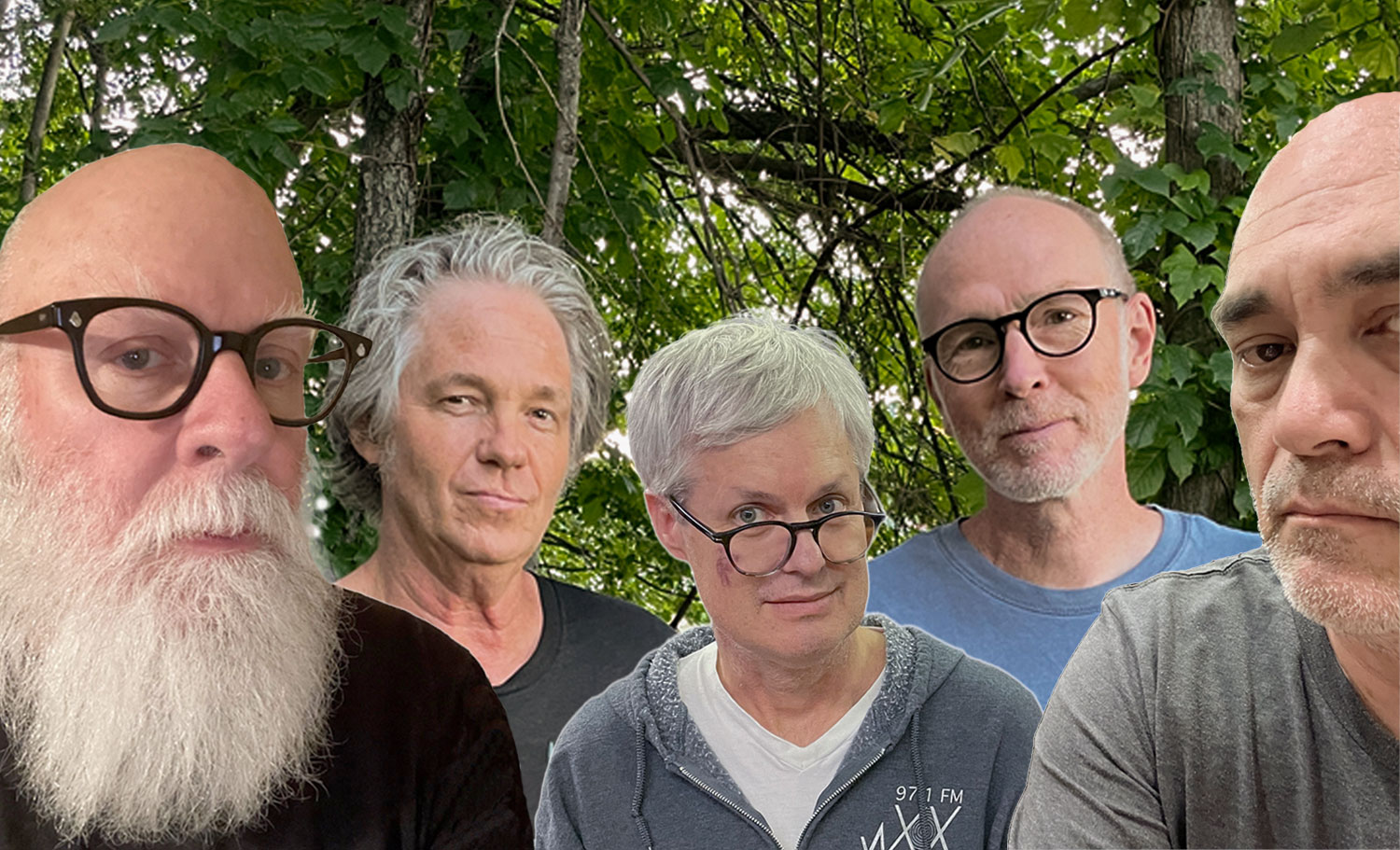Ron and Russell Mael smile indulgently at me like affectionate uncles. “The Sparks Brothers”—as filmmaker Edgar Wright dubbed them in his 2021 documentary—find my flustered, haphazard interview style amusing. I’m usually detached, in control. But on this video call, I feel like I’ve entered both Ron’s and Russell’s homes—and I’m giddy.
More from Spin:
- See Trailer For Miley Cyrus’ ‘Beautiful’ Visual Album
- Kevin Parker Refines Orchid Chord Generator For Second Drop
- Bruce Springsteen Releases EP With Trump-Bashing Speeches
Excited and nervous, I stumble through unrelated questions, then apologize for how random I’m being. When I say I’ll try to normalize, they insist, “Please don’t!”
Their impact—what I’m calling “The Sparks Effect”—is a common one. In 54 years of releasing music—their latest album, MAD! (out May 23), is their 28th—Sparks have shaped generations. You don’t just like Sparks, you worship them. One fan recently told me, “If AI could somehow download their brains so Sparks could keep going on and on, that would be amazing. They deserve to live forever.” Had they faced the brothers like I have, they might also be losing it, at least a little.
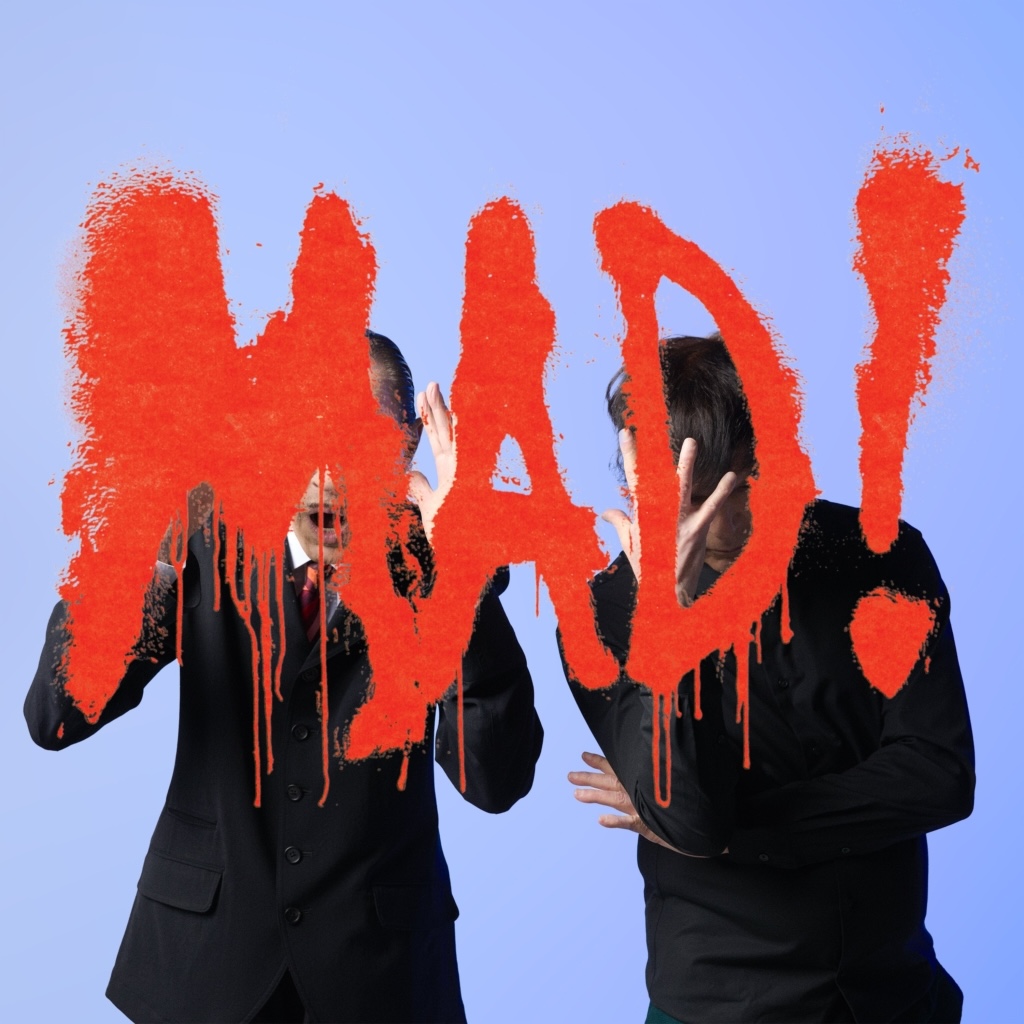
Sparks defy the cliché of dueling brothers in a band. They complement each other—sharp and sly, as their lyrics suggest. Their irreverent song topics turn everyday oddities into sticky earworms. On MAD! alone, there’s an ode to one of L.A.’s most congested freeways, “I-405 Rules,” and another to the humble “JanSport Backpack”—perhaps the least inspired but most durable of bags.
Ron (79) sits in what looks like a dusty museum, eyes shining behind his trademark round glasses. I imagine it as the physical manifestation of his mind. In his home, Russell (76) peers through large tortoiseshell frames, an Elvis figurine and kitschy knick-knacks behind him. I’ve seen these faces across decades and countless brilliant songs. In 2006, when they popped up on Gilmore Girls—same episode as Sonic Youth, Yo La Tengo, and Joe Pernice—with Russell flexing and Ron deadpanning at his keyboard, I thought my brain would explode. Since the documentary, it’s felt vindicating to watch Sparks finally get their due.
“A lot of people were really touched by us in a personal way before the film,” Ron tells me. “In one sense, you hope that other people discover the band. But the other thing is, “I want them for myself.” People really enjoy being part of a secret organization. We prefer to have those people disappointed.
“Hate to ruin the novelty, but we’re glad that it happened,” he chuckles.
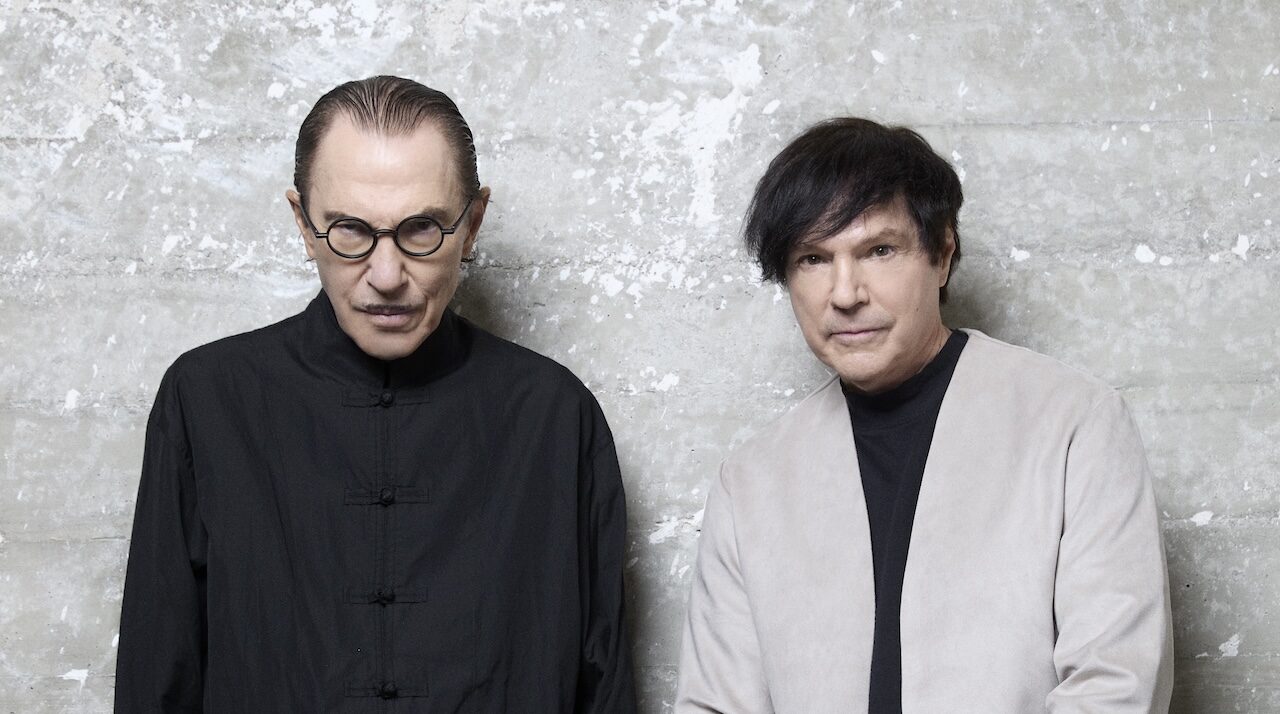
I lived by the 405 for nearly 30 years, so I have a special hatred for it. What made you want to write a song about that freeway?
Ron: One evening I went to the Getty Center. I hardly ever see the artwork. It’s more the place itself and the view of Los Angeles from there around dusk time, the traffic moving gave the appearance of being a river, something really flowing—even if it’s flowing slowly at that hour. There’s kind of an inferiority complex for some people in Los Angeles with regard to European monuments or landmarks like rivers that we don’t have. But I think there are things here that are beautiful. We just have to see them in a different light. That was the starting point for that song.
JanSport is probably the most basic, but most enduring, backpack ever made. How did it inspire the song?
Ron: I make no value judgments. I just write them. But it’s seeing some stylish people in foreign countries wearing that backpack. It used to be so utilitarian. It kind of floated into it being: what if that was the symbol of a girl leaving a guy? That image of her, not even seeing her, but seeing that backpack was a signal of depression for him.
Your sources of song inspiration are fascinating.
Ron: Some things aren’t based on any specific incident. They just come to you. We’ve been lucky over the years that if you stay open, ideas show up, even during those frustrating stretches when nothing seems to happen. They can hit at the strangest times.
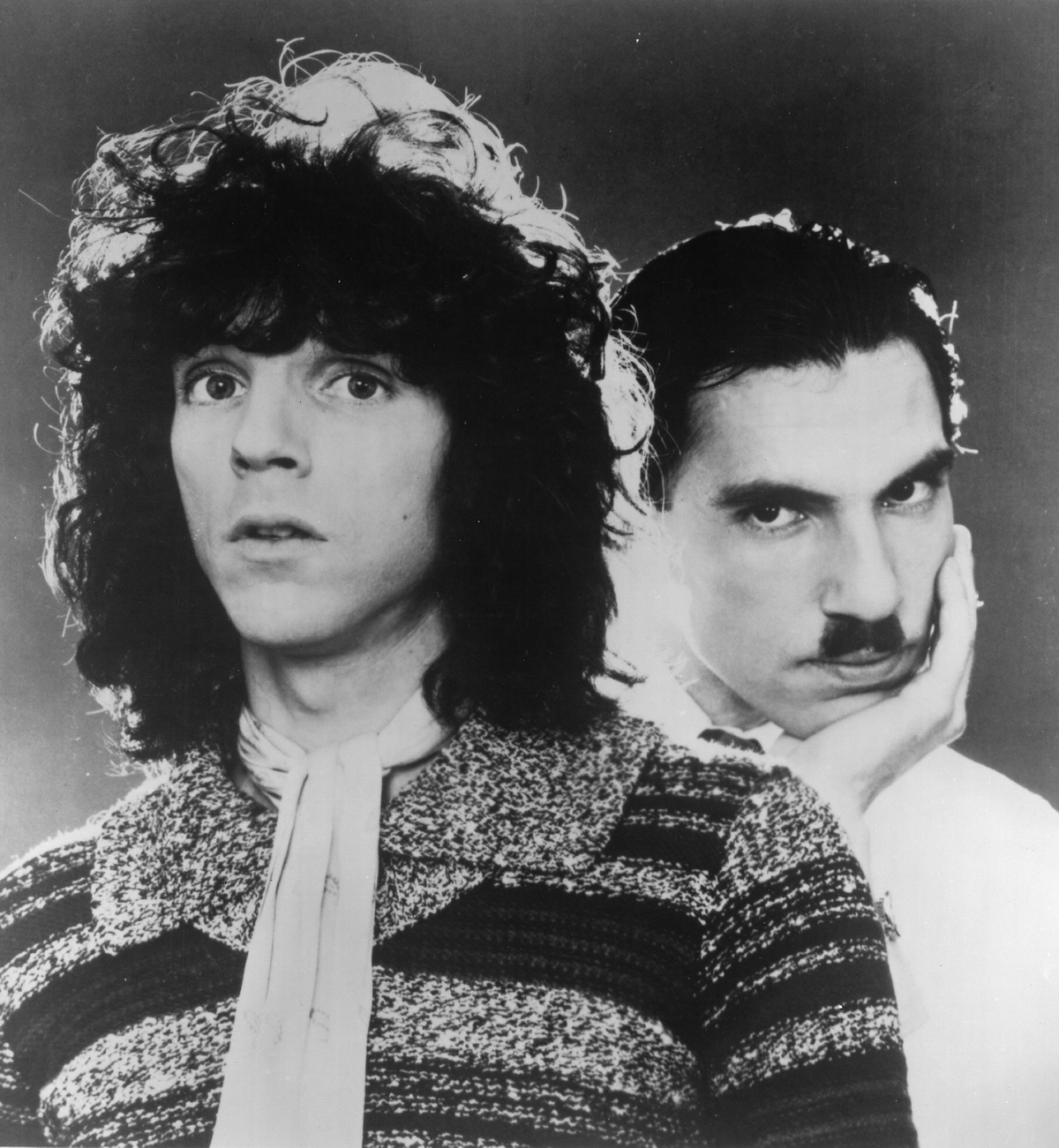
What has it been like writing and recording albums in your home studio?
Ron: In the ancient past, record companies were more generous with their recording budgets, and we would go into very expensive studios. It’s fun to spend that money. But the one thing is you had to be prepared when you went in. We would usually be well rehearsed, and there weren’t many alterations you could make once the recording started. One big advantage of the way we work now is we have so much flexibility in fooling around with the form of a song, or even starting from nothing where in the past that wouldn’t have even been possible. We don’t feel at all defensive either about the sound quality. The way things are technologically now, we’re able to do the same thing sonically that you can do in a big studio. It just doesn’t look as impressive.
You’ve worked with some great producers over the years. What lessons from them still stick with you?
Russell: We got a good education from a lot of the best that there are. From Tony Visconti, amazing producer, both his taste and his sensibility in music is pretty in line with ours. He’s an amazing musician. He’s an amazing technical engineer as well. Just having the support of those people—they’re not doing it in a way to stroke you, but just that they really encourage the eccentricity of what we’re doing, and don’t want to sand off the edges—has been really supportive. Giorgio Moroder is a different kind of producer, but he has his uniqueness and specialties that he brings to his recordings, in a completely different way than Tony Visconti. Even Todd Rundgren was another one. He not only produced our first album, but was the first person to acknowledge Sparks, to give us a record deal where we could make our first album. He was another one, almost like Tony Visconti, that didn’t want to change what we were, but he thought maybe the fidelity of our recordings could be enhanced, and he could help out that way. But he totally wanted to keep the demos that we presented to him, the final versions, to not stray off course from that. It’s learning things like that.
The songwriting thing, with someone like Muff Winwood, who did the Kimono My House album, he’s a different kind of guy, where he’s less coming at it from a musical way. It’s more a sensibility and a feeling and an encouragement of what you’re doing, pushing you to do the maximum that he thinks that you can do, saying, “Maybe there’s one more really great song for this album. Could you try to do it?” You’re hurt, because if you read into that, maybe you’re thinking, “Gosh, what’s wrong with the ones we’ve already presented?”
All those different producers, in the way they work, we learned how to be our own bosses, to take the things we’ve learned, and saying, “Maybe we need one more song to really make the album really strong,” as opposed to taking the easy route and saying, “That’s finished and it’s good enough as it is.”
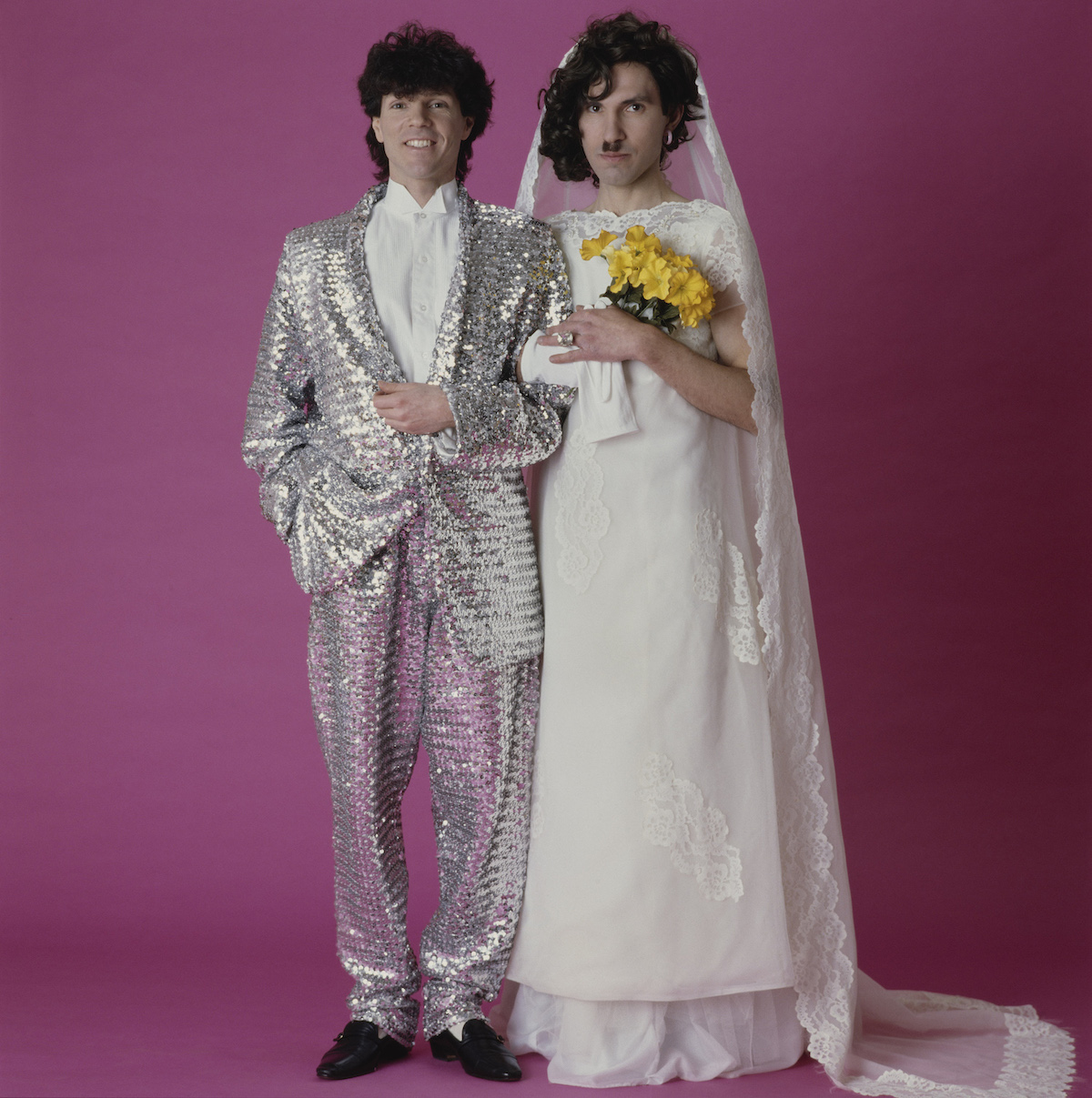
How did the producers help shape your perspective on your work?
Ron: That’s the hardest thing. Before, somebody else could do that. But we have to almost step outside of ourselves and try to be as objective as we can about things. It’s impossible when it’s you doing the thing, especially something that involves a certain measure of creativity. But we try as best we can to view things in a dispassionate way, knowing that, in the end, it’s going to make the strongest statement. For us, that’s the important thing, that the statement be bold and strong and striking. You get a feeling after a while when that’s happening for you.
Does the brotherly connection make creating music as Sparks easier?
Russell: We both have the same unspoken, unwritten goal for what Sparks should be. There’s not a conflict about what we should be doing. That’s a baseline for working. You don’t have to explain anything. We’re in agreement on the direction. Our roles don’t overlap at all within the band, so that isn’t an issue. We tend to rely on our own sense about what everything should be. It’s the easiest way to work.
Is there a creative medium you haven’t tried yet that you’d like to explore?
Russell: We have a new movie musical project we’ve been working on for a little bit now, that’s the next thing after the new Sparks album. A little over a year ago, we had another amazing bit of luck. We had read an interview with John Woo, the director, saying he wanted to do a musical. Knowing what his films are like, we just said, “That’s weird and really odd. We’ve got to contact him.” Turns out he lives in L.A. and that same week, he was sitting in our studio listening to the whole two hours of this project. He said, “This is amazing. I want to direct it.” Since then, we’ve been working with him to refine some little elements in the screenplay we’ve done. We’re hoping that’s going to get greenlit soon so we can start on it.
Ron: We got a lot of confidence, both from the Annette project and also from The Seduction of Ingmar Bergman. We would feel less comfortable if we were to do just a soundtrack for a film, but we really feel comfortable doing something that’s wall-to-wall singing for two hours. We wouldn’t give up doing Sparks songs, but it really helps in a musical sense, in a different way.
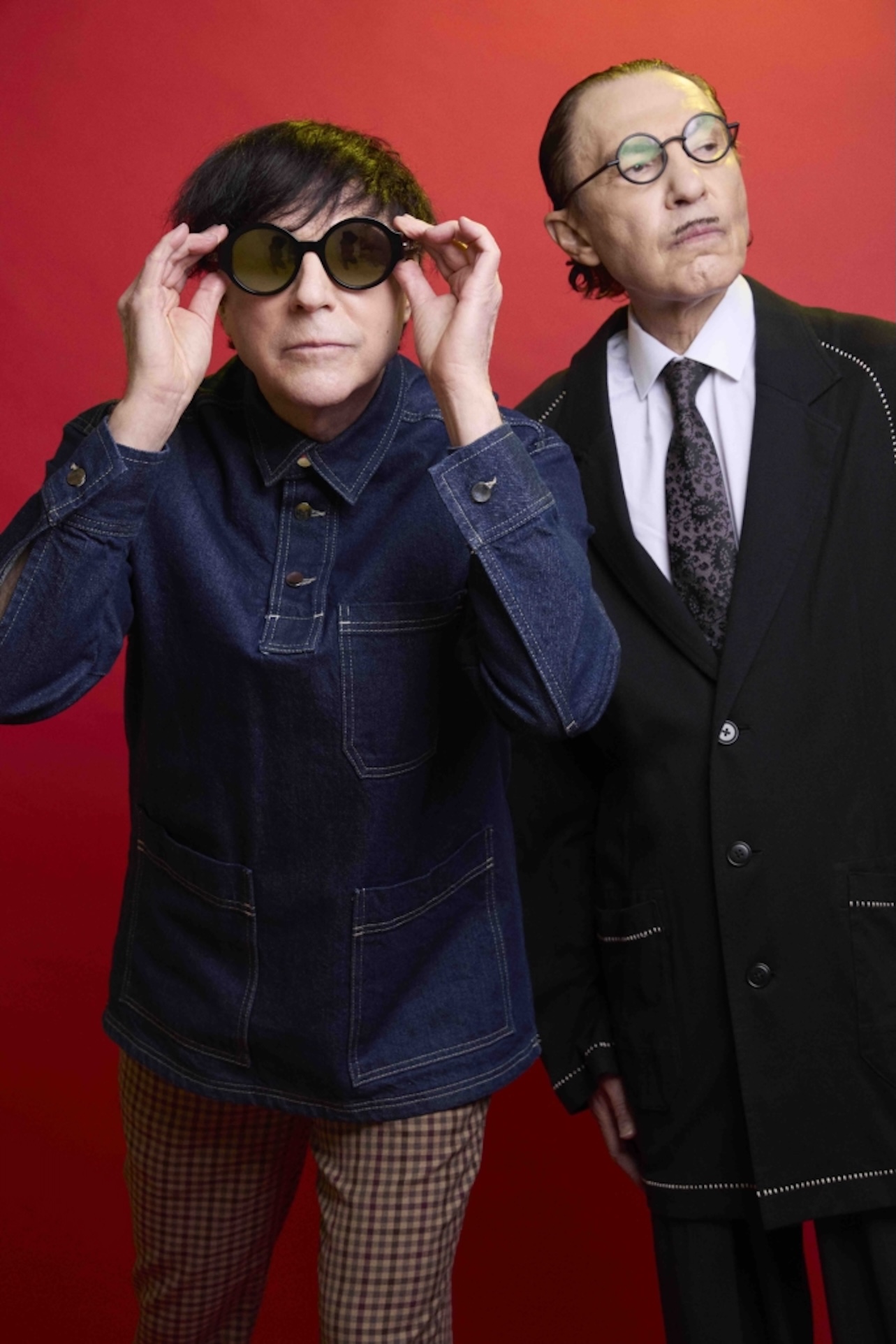
Did Edgar Wright’s documentary lead to your music being discovered by new fans or rediscovered by old ones?
Ron: We had previous offers to do a documentary, and we never wanted to do it. One of the reasons we wanted to work with Ed, there’s the thing of him being a great director, but also, his view was that there wasn’t a “golden age.” All the albums have a certain strength to them. Sometimes things get buried just because of lack of commercial success. But he didn’t need to be sold. That was definitely a selling point for us. Rather than saying, we’ll emphasize this decade, and then a little addendum is the rest, he wanted to treat everything, and I think it had an effect.
Russell: It also liberated us in our live shows to do some really obscure songs that we still like a lot from albums that were maybe not that well known. We know now that Sparks fans and people coming to see us, they’re surprised at hearing something they wouldn’t have expected. We found that they sonically fit into what we’re doing now. There’s not a distinction. If someone comes and doesn’t know our whole history, maybe they won’t even know exactly what era something is. It’s really fun for us.
You’re about to embark on a massive world tour starting June 8. After seeing your 20-song hometown Hollywood Bowl show in 2023, I’m curious—how do you maintain the stamina for performances like that?
Russell: Caring is the first step. You want to be able to present yourself on stage in the way that if people have heard your records, and they know who you are, that you sound like how you sound on record. It’s a task, because there’s a physiological thing, singers especially, over time, ranges get narrower. You have to combat that sort of thing. I try doing as much cardio stuff as I can do, because it all helps your breathing. Singing is all about breathing. Then, leading a really boring life where you don’t do anything. No smoking and things like that. Common sense and maybe good luck along the way too.
I’ve seen you outshine every act at festivals. What’s your secret?
Ron: Even after having done it for quite a long time, we really enjoy what we’re doing. You can’t fool people in that sense. It seems kind of haphazard, sometimes unsafe, but we really are disciplined in what we do. The documentary showed the discipline of writing, but we’re disciplined in the live shows too, to try and not let down those songs by a presentation that’s kind of substandard. We feel we have an obligation to have the live show match the quality of the album as best as we can. We’re fortunate enough to play with great musicians that really embody what we would like to do. You can’t guarantee it 100%, things happen from night to night, but we try to be prepared for every kind of situation.
To see our running list of the top 100 greatest rock stars of all time, click here.


